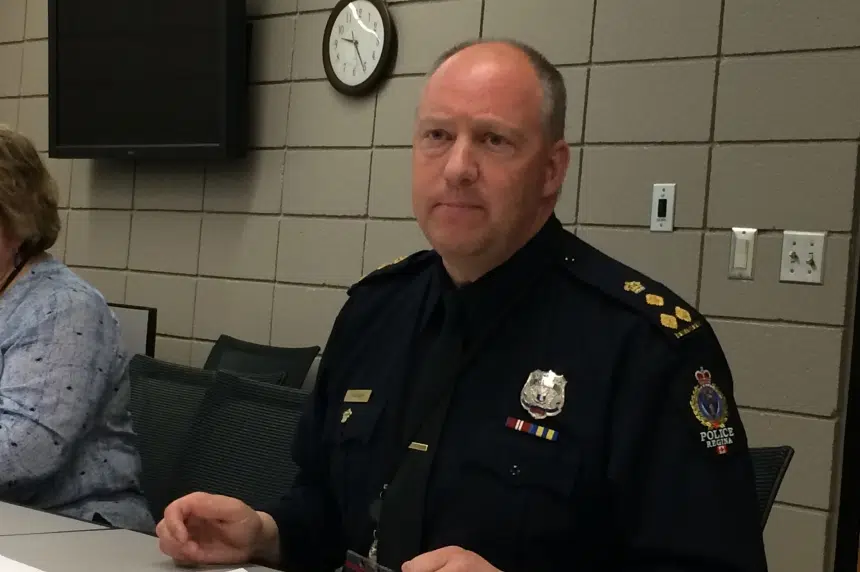Street checks will remain part of the work done by Regina Police Service (RPS) officers despite some criticism of the method.
There isn’t one widespread approach to how street checks are conducted with the practice often put into the same category as carding.
But in a report to the Board of Police Commissioners, the RPS sees the two as entirely different.
“Carding means gathering personal information on a person or group of people for the purpose of building a police database whether or not a specific investigation is taking place,” the report states. “The RPS views street checks as simply a communicating interaction or dialogue.”
People feel Street checks are becoming increasingly controversial because they view them as random, racially-biased and often done without reasonable cause.
RPS Chief Evan Bray denied that is the case here but likens street checks to what was done before officers had cars, on the beat walking around and talking to people.
“Street checks are not isolated to just one area of the city, they happen in all areas of the city and they can be as simple as just communication with people,” Bray argued. “It is all part of us working to keep our community safe but are done respectfully and are done without forcing people to talk to us.”
At the Board of Police Commissioner meeting Wednesday, Bray cited recent examples of officers using street checks.
One was a man looking into a car in alley parked by a tire shop early in the morning. Bray said officers would have asked what that person was doing and why. It turned out the man was the owner of the business.
Bray adds no information would have been saved about the person unless it was pertinent to an ongoing investigation. That information would have been attached to a file on that particular investigation, there is no file kept on street checks.
But given the criticism, Bray is open to the idea of recording the interactions to show why they are done.
“If there is a way that we could show through data collection that it is being evenly done throughout the city, that there is no bias in terms of race or gender, if we show that through data collection, and if there is a way that we can do it respectfully while we still protect human right and charter rights then absolutely I am open to that,” Bray said.
Three presentations were made to the Board of Police Commissioners from members of the public critical of street checks.
The Saskatchewan Police Commission is currently reviewing the final draft of a provincial policy on the practice of street checks which is due this fall.











